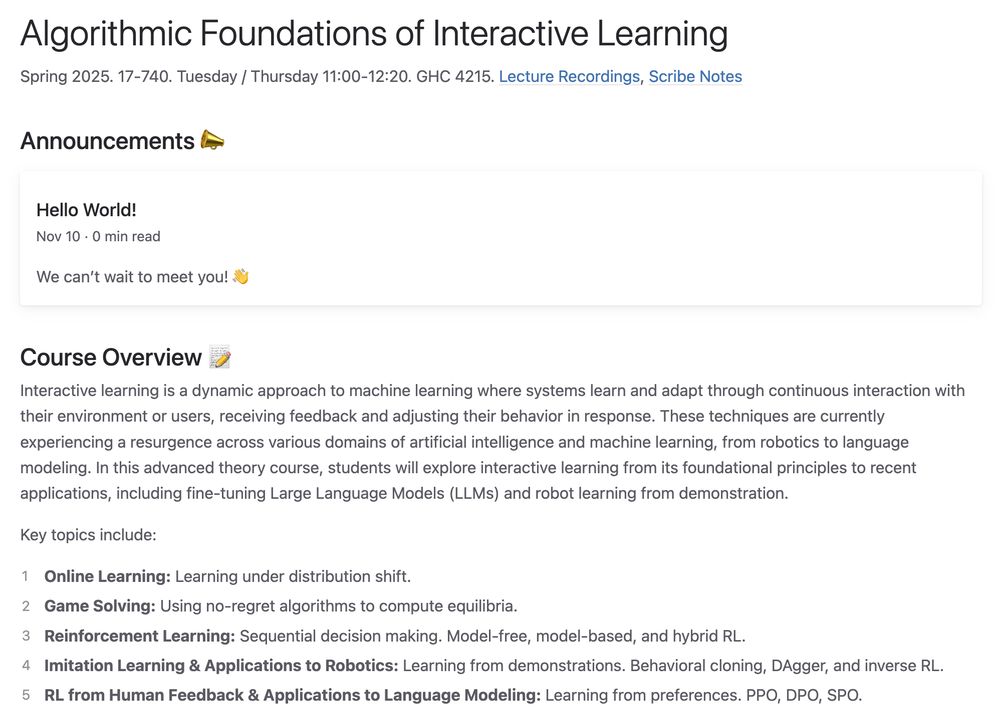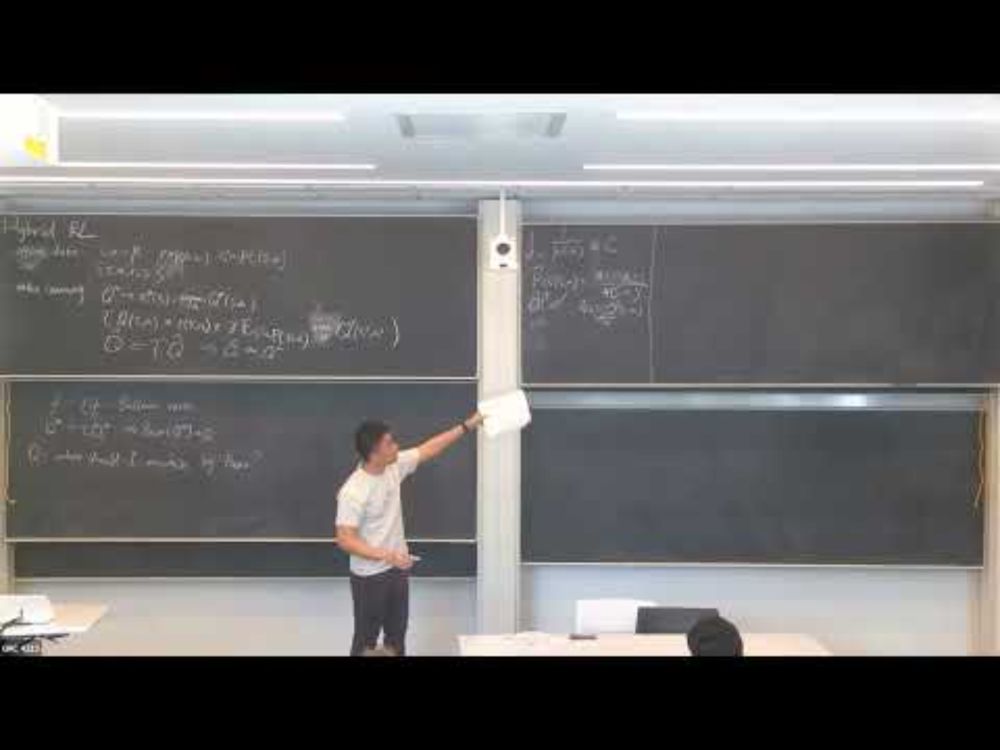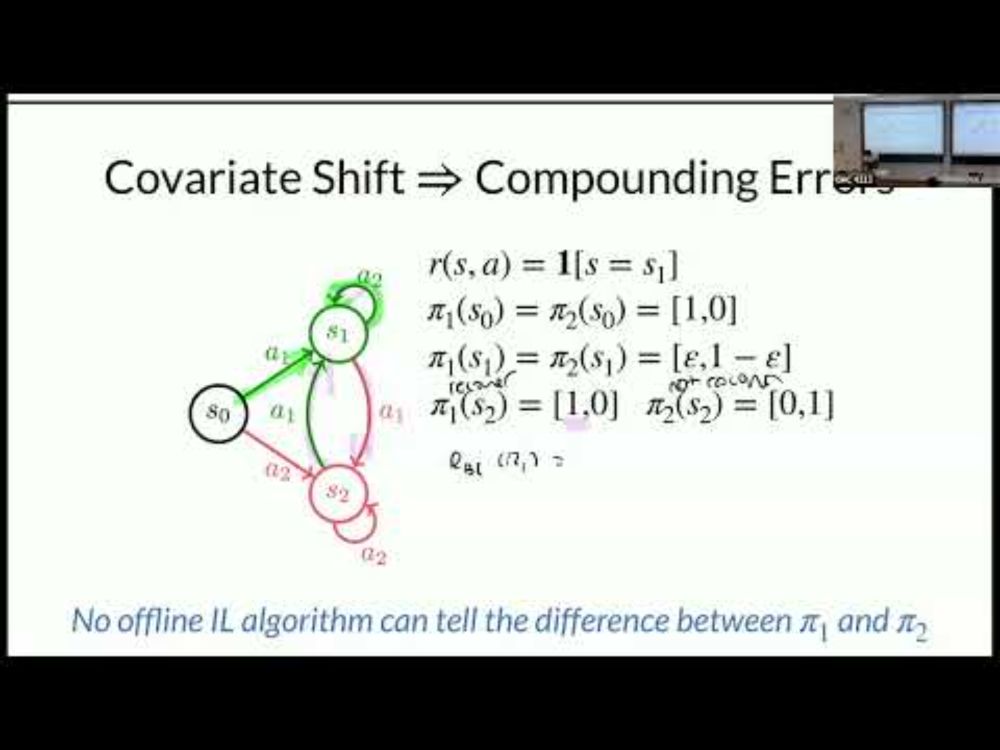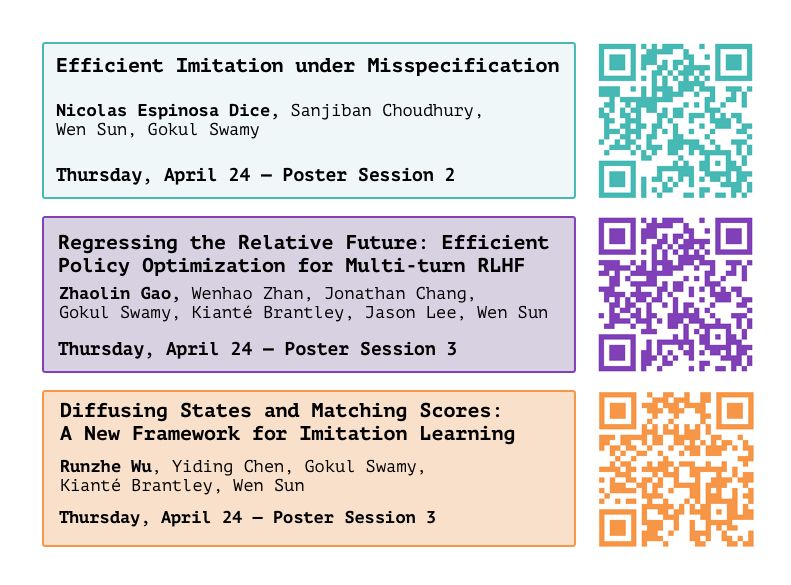Gokul Swamy
@gokul.dev
4.2K followers
420 following
110 posts
final year PhD student at @cmurobotics.bsky.social working on efficient algorithms for interactive learning (e.g. imitation / RL / RLHF). no model is an island. prefers email. https://gokul.dev/.
Posts
Media
Videos
Starter Packs
Pinned
Gokul Swamy
@gokul.dev
· Mar 6
Gokul Swamy
@gokul.dev
· Aug 23
Gokul Swamy
@gokul.dev
· Aug 23
Gokul Swamy
@gokul.dev
· Jul 15
Gokul Swamy
@gokul.dev
· Jul 15
Gokul Swamy
@gokul.dev
· Jul 15
Gokul Swamy
@gokul.dev
· Jul 15
Gokul Swamy
@gokul.dev
· Jul 15
Gokul Swamy
@gokul.dev
· Jul 15
Reposted by Gokul Swamy
Reposted by Gokul Swamy
Gokul Swamy
@gokul.dev
· Jun 20
Gokul Swamy
@gokul.dev
· Jun 20
Gokul Swamy
@gokul.dev
· Jun 20
Gokul Swamy
@gokul.dev
· Jun 20
Gokul Swamy
@gokul.dev
· Jun 20
Gokul Swamy
@gokul.dev
· Apr 27








